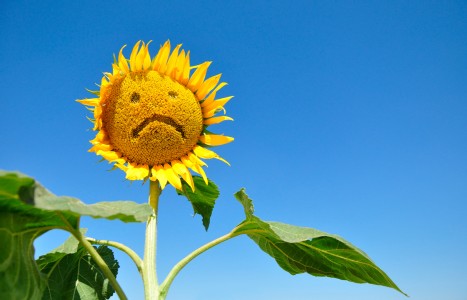Did any of you ever get the feeling in school that it simply was not OK to speak about wanting to be successful? To get into the nitty gritty details of how to make money in practice? Maybe you were even someone like me who was directly told by someone in a position of power that I needed to take what I could get because in private practice, I wouldn’t make money.
Creating Firm Foundations for a Flexible Future
The Chinese Herb Academy was founded in May 1999. I was living in Portland, Oregon at the time and was feeling isolated from the bulk of those who practice Chinese herbal medicine (CHM). I was particularly in need of being able to discuss cases, medical terminology, advanced theory and more with others who were experienced and interested in these topics. I was a neophyte when it came to doing things online at the time, but I was intrigued by the possibilities the Internet presented towards my goal. There are only a relatively small number of acupuncturists across the country, and even fewer who really specialize in CHM. The Internet offered a way to link all of us together that was not really possible through conventional journals or continuing education. So I taught myself a little HTML (the code used to make Web pages), created a website (www.chineseherbacademy.org), posted a few of my own articles online, and even developed an online continuing education class that was eventually approved by the NCCAOM.
The piece de resistance, however, was the online discussion group. Beginning with only three members, the group has rapidly grown to over 500, making it the largest online professional forum devoted to CHM in the world. The group includes licensed practitioners from all over the world; traditional Chinese medicine students at accredited colleges; and many of the leading textbook authors, journal editors and publishers in the field of TCM. Discussions range from case analysis to the importance of learning medical Chinese. Terminology choices are debated, as are the meanings of arcane passages from the classics. We are particularly fortunate to have a number of members with expertise in the Chinese language to illuminate us on such topics. I remember how nervous I was the first time I wrote a letter to someone famous in our field back in the old snail mail days of 1993. Now, anyone who has something interesting to say may find themselves in a casual conversation with well-known experts such as Bob Flaws, Dan Bensky or Z'ev Rosenberg.
The depth of knowledge of those who are lesser known is truly astounding, as well. Regular contributions from those engaged in research, product development, education and clinical practice really add nuance to the conversation. Have you ever wondered what kampo practitioners have to say about their art? All you have to do is ask. It's a real conversation, too. You feel like you are sitting with a council of elders sharing their wisdom. By and large, it is a very civil forum. Other such endeavors have fallen flat because people sometimes don't treat each other with respect in these groups, but we have worked hard over the past two years to lay fair ground rules that facilitate a high level of discourse. By all accounts, the level of discourse can be considered very high. We don't allow lay people into the group to ask for free health advice, nor do we allow people to just hawk their products. Everyone has at least some formal training in TCM, or some other high level training (linguistics, pharmacology, sinology, etc.).
The group has been so active and growing so rapidly in recent months, it seemed like it was a good time to take the show on the road. So, in cooperation with Redwing Press and Pacific College of Oriental Medicine, we have decided to organize the 1st Annual Conference of the Chinese Herb Academy in San Diego this June. We have attracted an exciting list of speakers to talk about the treatment of knotty diseases under the theme of "Creating Firm Foundations for a Flexible Future." Speakers and their presentations will include:
- Bob Flaws, author and editor of over 70 books, on "The Three Main Mechanisms of All Psychoemotional Disorders";
- Z'ev Rosenberg, chair of the Chinese herbology department at PCOM, on "Pulse Imagery in Clinical Practice";
- Craig Mitchell, translator of the Shang Han Lun, on "Harmonizing the Qi Dynamic";
- Marnae Ergil, author of Practical Diagnosis in TCM, on "Beyond Kidney Yang: Exploring the Etiology and Treatment of Male Sexual Dysfunction in Chinese Medicine";
- Bob Felt, editor of Paradigm Press, on "State of the Art: Basic Science, Scholarship, Law and Economics";
- Guohui Liu, author of Warm Diseases: A Clinical Guide, on "The Use of Purging in Warm Diseases"; and
- Philippe Sionneau, author of numerous books, on "New and Forgotten Applications of Chinese Materia Medica."
The goal of the conference is to provide attendees with tools to advance their abilities in the practice of CHM. It is not so much about how to treat a particular disease or symptom, but rather how to understand and utilize concepts and methods that go far beyond basic textbooks. To that end, we have focused this year's program on speakers who have demonstrated an ability to comb the archives of classical literature to enhance their practices. We strive to follow the ancient Chinese tradition of grounding new ideas and elucidating old ones through an understanding of the tradition from which these ideas have sprung, and that tradition is the classical medical literature of China. It 's shaping up to be quite a rollicking affair.
If you would like more information about this exciting event, call Redwing Press at (800) 873-3946 or e-mail me at tluger@chineseherbacademy.org. See you there!


